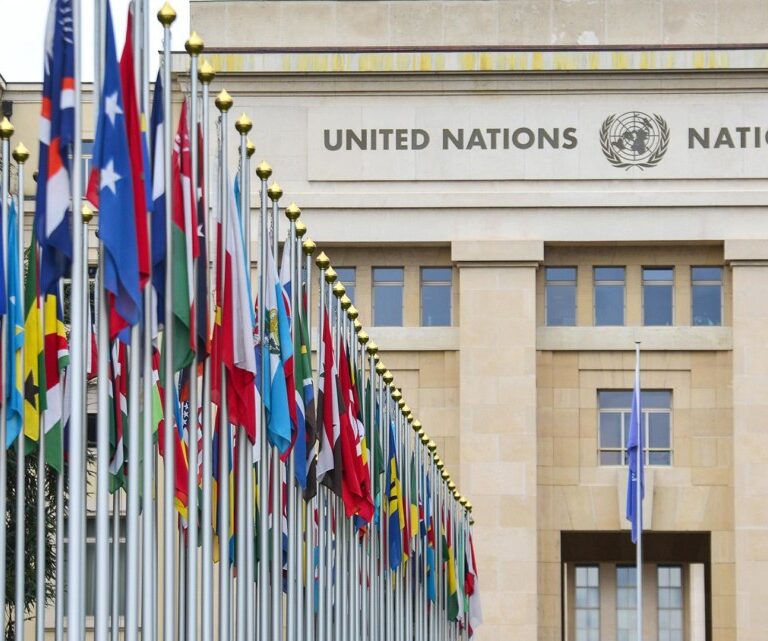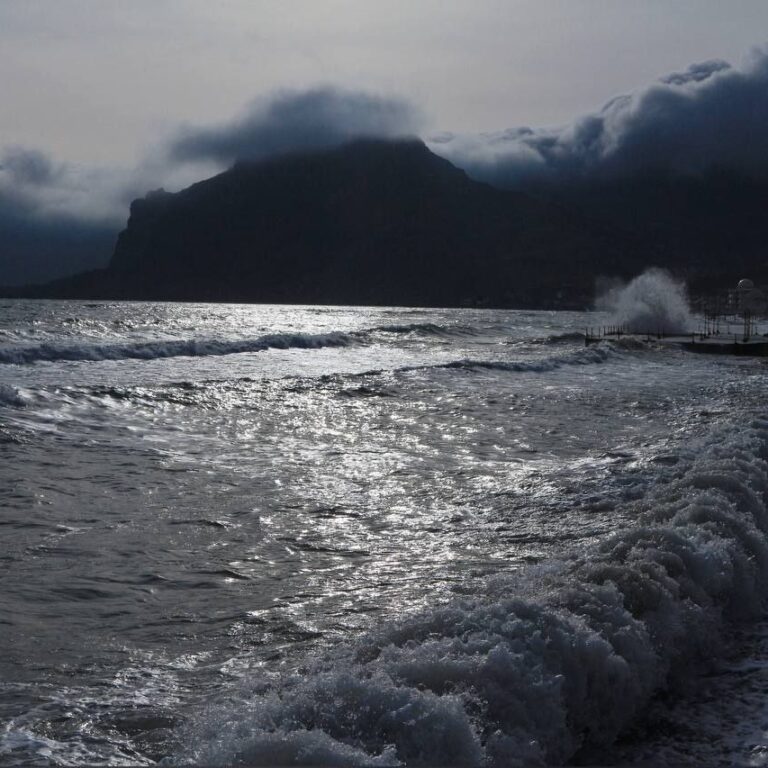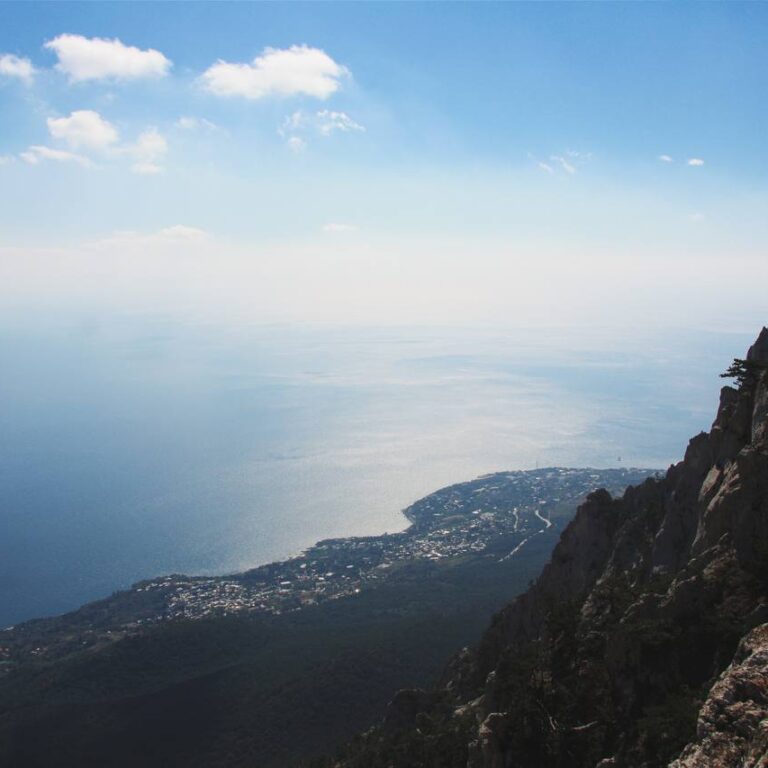From the beginning of the Russian aggression, the Ukrainian lawmaker consistently responded to its development, occupation and attempted annexation of Crimea and Sevastopol, to the escalation of the conflict by approving a number of specialized laws, their gradual improvement, and approving parliamentary statements and petitions. Therefore, the consistent approval by the Ukrainian authorities of normative documents regarding the issues of deoccupation and reintegration of Crimea requires the analysis of novelties in this area, especially taking into account the relevant strategies and plans that have been approved recently and provide for the active conduct of relevant rulemaking.
The situation was analyzed by Association experts Anna Prykhodko and Boris Babin, based on the work of the team of authors of the “Future of Crimea” forum held by the Crimean Tatar Resource Center. The analysis shows that in 2023, it is possible to notice an increase in the number of laws denouncing Ukraine’s international treaties, which are incompatible with the situation of Russian aggression, in particular with the ongoing occupation of the Crimea.
Among other things, in connection with the Russian aggression and occupation of the territories of Ukraine, the Agreement between Ukraine and the Russian Federation on cooperation in the use of the Sea of Azov and the Kerch Strait was denounced (Law of Ukraine dated February 24, 2023 No. 2948-IX), also as Agreement on the establishment of the Black Sea Group of Military-Naval Cooperation (Law of Ukraine dated February 24, 2023 No. 2949-IX); Agreement between the Cabinet of Ministers of Ukraine and the Government of the Russian Federation on the promotion and mutual protection of investments (Law of Ukraine dated August 10, 2023 No. 3329-IX); and as more than ten agreements with the aggressor, primarily intergovernmental ones.
The termination of the 2003 treaty on the Sea of Azov is of fundamental importance in determining the international legal status of its waters adjacent to the Crimean Peninsula. Accordingly, the 1999 Investment Agreement previously had an exhaustive meaning regarding the initiation of arbitrations against Russia regarding illegally expropriated property in the Crimea; at the same time, its termination in the conditions when the occupied peninsula becomes a front-line territory is considered fully justified.
In 2023, a number of basic laws contained prescriptions directly related to countering Russian aggression, in particular the Law of Ukraine of March 21, 2023 No. 3005-IX “On Condemnation and Prohibition of Propaganda of Russian Imperial Policy in Ukraine and Decolonization of Toponymy”, which among another gave the definition of Russification and formed the principles of decolonization of Crimean names.
The Law of Ukraine “On Law-Making Activities” of August 24, 2023 No. 3354-IX more clearly defined the place of the Constitution of the Autonomous Republic of Crimea as the law of Ukraine and resolutions of the Verkhovna Rada of the Autonomous Republic of Crimea, resolutions of the Council of Ministers of the Autonomous Republic of Crimea, orders of ministries of the Autonomous Republic of Crimea in the hierarchy of normative acts of Ukraine, as normative-legal acts of the authorities of the Autonomous Republic of Crimea, and thast Law mentioned the acts of the Sevastopol City State Administration.
Among the laws that transformed other sectoral, in particular, procedural acts of legislation in 2023, the Law of Ukraine of August 23, 2023 No. 3334-IX must be pointed, which changed the date of entry into force of the new administrative-territorial division in the Autonomous Republic of Crimea and Sevastopol, and the decommunized settlments’ names in the Crimea.
It is also worth mentioning the Law of Ukraine dated April 11, 2023 No. 3054-IX, which amended the issue of documents certifying identity and confirming citizenship of Ukraine, documents certifying identity and confirming its special status, as well as entering information about registered or declared place of residence in the territory of Ukraine temporarily occupied by Russia and in the territories where hostilities are (were) taking place.
It should also be noted the Law of Ukraine dated March 21, 2023 No. 2997-IX, which improved the norms of the codes regarding the improvement of the fight against terrorism, in particular the specially criminalized crossing of the state border of Ukraine for terrorist purposes, and the Law of Ukraine dated August 23, 2023 No. 3341-IX, which improved the calculation of pre-trial investigation periods under martial law.
At the same time, separate acts approved in 2023 on countering aggression do not cover the Crimean issues, which is separately noted in them; in particular, this is the Law of Ukraine dated February 23, 2023 No. 2923-IX on compensation for damage and destruction of certain categories of immovable property as a result of hostilities, acts of terrorism, sabotage caused by armed aggression of Russia against Ukraine, and the State Register of Property, damaged and destroyed as a result of hostilities, terrorist acts, sabotage caused by the armed aggression of Russia against Ukraine.
In 2023, a significant volume of parliamentary decisions regarding the occupied territory took the form of resolutions. In particular, this is a rather systematic Statement of the Verkhovna Rada of Ukraine on the priority directions of the state policy of Ukraine in the field of deoccupation, reintegration and restoration of the Autonomous Republic of Crimea and the city of Sevastopol, approved by Resolution No. 3333-IX dated August 23, 2023; in this regard, it is noteworthy that the parliamentary website contains a note that the translation of the text of this Statement into English was provided by the Mission of the President of Ukraine in the Autonomous Republic of Crimea as the National Office of the Crimean Platform.
In the corresponding resolution, the speaker is instructed to send a statement to the UN, the European Parliament, the parliamentary assemblies of international organizations, national governments and parliaments of the states participating in the summits of the International Crimean Platform, and recommends that the Cabinet of Ministers of Ukraine to take into account the provisions of the Statement when formulating and implementing state policy in the field of deoccupation, reintegration and restoration of the AR Crimea and the city of Sevastopol, in particular during the preparation of relevant projects of normative legal acts.
The Statement emphasizes the priority of guarantees of human security, de-occupation as a complex of military, diplomatic, economic, informational, humanitarian and other measures and as a key condition for ending the war. Among the novelties of the Statement, it is worth pointing out that citizens of Ukraine who participated in the activities of the occupation administrations or cooperated with the occupation structures, but did not commit serious, especially serious crimes and criminal offenses against peace, human security and international law, may be released from criminal liability, on the condition of voluntary notification of committed acts, as well as active assistance in the disclosure of criminal offenses committed by occupation administrations and structures.
Also, the Statement states for the first time that Russian citizens and other persons who illegally moved to the territory of the Crimea and the city of Sevastopol during the period of temporary occupation will be expelled from the territory of Ukraine by making individual decisions in accordance with the law.
In addition, the Statement indicates that the International Crimean Platform should become a platform not only for promoting the de-occupation of Crimea and restoring the territorial integrity of Ukraine, but also for guaranteeing security in the Azov-Black Sea region as a whole.
It is worth reminding that the tradition of systematically reflecting challenges related to the occupied territories in the resolutions of the parliament has become traditional for the legislation of Ukraine for 2014-2022. In particular, such resolutions, which number more than 85, including 30 on the approval of individual statements of the Verkhovna Rada, established a number of legal facts and regulated individual legal relations.
The relevant appeals of the Verkhovna Rada, approved before large-scale Russian aggression, were addressed to foreign countries, their parliaments, international organizations and inter-parliamentary assemblies. They related to the oppression of human rights by the Russian invaders in the occupied territory, honoring the victims of the genocide of the Crimean Tatar People and their protection from the oppression of the occupiers, individual facts of the escalation of the conflict, criminal encroachments of the aggressor on Ukrainian sovereignty, illegal “elections” in the occupied territory, as well as support for the activities of the Crimean Platform.
In 2022, parliamentary statements were approved regarding the condemnation of Russian genocide in Ukraine, the attempt to annex the occupied territory, the recognition of the Russian regime as a terrorist one, the illegitimacy of Russia’s presence in the UN, about Russian naval aggression, etc. The corresponding practice was continued in 2023, and in this regard it is worth pointing out such acts of the Verkhovna Rada, where the occupation of the Crimea was mentioned, such as:
- Appeal to the Parliamentary Assembly of the OSCE and the parliaments of its member states regarding the inadmissibility of the participation of members of the Russian parliament in the work of the statutory bodies of the Assembly (Resolution of February 6, 2023 No. 2901-IX);
- Appeal to the parliaments and governments of the countries of the world and international organizations on the occasion of the anniversary of the full-scale invasion of Russia into Ukraine (Resolution of February 24, 2023 No. 2942-IX);
- Appeal to the UN Committee on Human Rights, the UN Committee on the Rights of the Child, the UN International Court of Justice, the UN High Commissioner for Refugees on Russia’s violation of international treaties (conventions) that have signs of genocide of the Ukrainian people, in terms of forced deportation to the aggressor state or within the temporarily occupied territories of Ukraine of children who are citizens of Ukraine and children who lived on the territory of Ukraine, with the demand to return such children to their parents or legal representatives (Resolution of February 24, 2023 No. 2947-IX);
- Appeal to the parliaments and governments of foreign countries, international organizations and their interparliamentary assemblies regarding the condemnation of the crimes of forced deportation of Ukrainian children committed by the Russian Federation and the Republic of Belarus (Resolution of May 3, 2023 No. 3099-IX);
- Appeal of the Verkhovna Rada of Ukraine to UNESCO, the parliaments and governments of member states of this international organization on the necessity of depriving Russia of its membership in UNESCO (Resolution of July 28, 2023 No. 3282-IX);
- Appeal to international organizations, parliamentary assemblies, governments and parliaments of foreign countries in connection with the holding of illegal elections by Russia in the temporarily occupied territories of the Donetsk, Luhansk, Zaporizhzhia and Kherson regions of Ukraine, the Autonomous Republic of Crimea and the city of Sevastopol (Resolution dated September 21, 2023 No. 3387-IX).
Separately, it should be noted the Address of the Verkhovna Rada of Ukraine to the national parliaments of the states – contemporaries of the First Parliamentary Summit of the International Crimean Platform in the context of nine years of temporary occupation and the attempt of illegal annexation of the Authonomous Republic of Crimea and the city of Sevastopol by Russia with the aim of consolidating actions aimed at further resistance to the temporary occupation of the Crimean Peninsula and overcoming its consequences after the end of the occupation (Decision of February 24, 2023 No. 2946-IX).
This document is characterized by a mention of the courage and heroism of the citizens of Ukraine living in the temporarily occupied Crimea in defense of the territorial integrity of Ukraine, in particular those who expressed and continue to express their anti-war protest and their solidarity with the mainland of Ukraine in connection with the terrible human losses. destruction, material damage caused by the army of the aggressor country.
The Address contains a call to implement at the parliamentary level the decisions of the Constituent Summit and the First Parliamentary Summit of the International Crimean Platform, by consolidating joint efforts to implement and strengthen the policy of non-recognition of the attempted illegal annexation of the Authonomous Republic of Crimea and the city of Sevastopol and the constant strengthening of the effectiveness of the current restrictive measures against Russia.
The appeal also calls on foreign parliaments to support at the parliamentary level the Peace Formula proposed by the President of Ukraine, to adopt statements in support of Ukraine’s efforts to de-occupy temporarily occupied territories, including the Autonomous Republic of Crimea and the city of Sevastopol, to adopt a decision on the creation of parliamentary groups to support the International Crimean Platform in national parliaments, to take parliamentary measures to prevent the further destruction of the cultural heritage of the temporarily occupied Crimea, including the culture of the indigenous people – the Crimean Tatars.
In addition, the Appeal suggests that parliaments appeal to national governments regarding financial support for reintegration measures aimed at solving a multi-component group of problems (economic, humanitarian, social, environmental) caused by the temporary occupation by Russia of part of the territory of Ukraine, including the Autonomous Republic of Crimea and the city of Sevastopol, after its de-occupation, and offers foreign parliaments together with national governments to consider the issue of starting joint projects on the restoration of temporarily occupied Crimea after its de-occupation, security, human rights, cultural heritage, threats to the environment, protection of the rights of indigenous peoples.
At the same time, a significant part of the acts approved by the Ukrainian parliament in 2023 regarding Russian aggression do not directly mention the Crimea; in particular, these are resolutions of the Verkhovna Rada of Ukraine dated February 6, 2023 No. 2899-IX, No. 2903-IX and No. 2904-IX, dated March 20, 2023 No. 2961-IX, dated May 2, 2023 No. 3076-IX, No. 3078-IX and No. 3087-IX, dated May 29, 2023, No. 3118-IX, dated June 10, 2023, No. 3142-IX, dated June 28, 2023, No. 3163-IX, dated July 28, 2023, No. 3283-IX, etc. In addition, until 2022, at least four temporary investigative commissions related to issues of Russian aggression were established by parliamentary resolutions and 4 more such commissions were created in 2022.
In 2023, more such commissions were formed, for example, the Temporary Investigative Commission on Investigating Possible Facts of Violations of Ukrainian Legislation Regarding the Export and Import of Goods, the Country of Origin or Destination of which is Russia (Resolution of September 21, 2023 No. 3394-IX). The Resolution of the Ukrainian Parliament dated September 21, 2023 No. 3395-IX approved the Report of the Temporary Investigative Commission on Investigating Possible Violations of Ukrainian Legislation in the Field of Receiving, Distribution, Transportation, Storage, Targeted Use of Humanitarian and Other Aid, as well as Inefficient Use of State Property, which can be used for temporary accommodation of internally displaced persons and provision of other needs of the state formed last year.
At the same time, a significant part of this document was devoted not to the directly indicated issues, which also concern Crimean displaced persons, but to the aspects of “property of all-Union public associations (organizations) of the former Union of the SSR” and the corresponding activity of Ukrainian trade union federations. Also, the Parliamentary Resolution No. 2965-IX of March 20, 2023 approved the Report on the Work of the Temporary Special Commission on International Humanitarian and International Criminal Law in the Conditions of Armed Aggression of Russia against Ukraine, formed in 2022, but the Crimean dimension of the relevant challenges it is not directly mentioned there.
Let us add that people’s deputies associated with the Crimean Tatar indigenous people or with the protection of the rights of indigenous peoples were not included in the composition of the Temporary Special Commission of the Verkhovna Rada of Ukraine on issues of preparation of the project of the main principles of the state policy of Ukraine regarding interaction with the national movements of small and indigenous peoples of Russia, formed by Resolution No. 3355-IX dated August 24, 2023. Thus, further activities of the Ukrainian parliament regarding the deoccupation and reintegration of the Crimea will require separate scientific studies.







